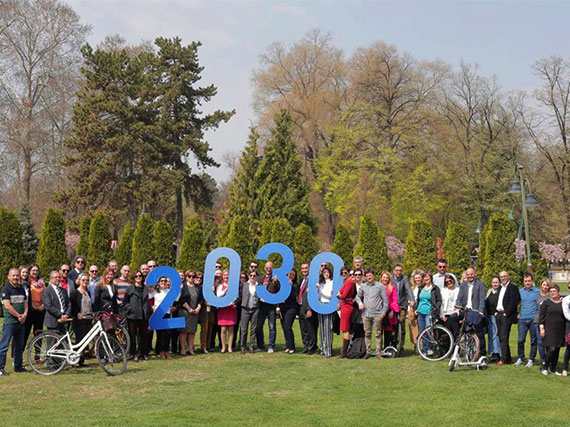Status update
1. MDI
MDI was piloted as an instrument for tracking the progress of municipalities toward the achievement of the Sustainable Development Goals (SDGs). Based on collection and analysis of extensive statistical data, the MDI provides a preliminary ranking of municipalities in relation to their development levels.
Next steps:
– Refinement of MDI in light with the new data expected from the 2021 census
– Institutionalization of MDI as an official tool of the Ministry of Local Self- Government/Government
2. Functional Analysis
FA was carried out targeting MLSG, the Bureau for Regional Development and the eight regional development centers and the units of local self-government. It places special emphasis on the ability of the system to deliver the development agenda at local level. It generates guidance on structural changes the system needs to undergo to improve effectiveness of the development agenda. Currently the project expands the FA on 4 pilot municipalities and 2 regional centers that will receive guidance on improved internal setup.
Next steps:
– Completion and presentation of the FA for the pilot municipalities and regional centers
3. Technical Documentation Fund
TDF was prototyped under which a total of 53 different local/regional infrastructure projects were supported (51 municipal, 2 regional). The purpose of TDF is to provide local self- government units with comprehensive technical documentation that they can use to raise funds for implementation of different types of communal, social and environmental infrastructure. In addition, in response to COVID-19, part of the TDF was used to support the Ministry of Health in providing up-to-date technical documentation for improving the conditions of 9 health care centers. All 9 projects are expected to be funded by a World Bank grant. This process is underway.
TDF is the most investment-heavy part of BMCPI with app. USD 1.5 million of Sida funding and almost USD 200,000 local & UNDP co-funding realized through two public calls for projects. Besides the technical documentation itself, the TDF implementation is being organized as a capacity development activity providing the beneficiaries with new knowledge and skills to be more efficient in similar initiatives in future.
Next steps:
– Completing the outstanding activities for preparation of technical documentation
– Summary of lessons learnt and recommendations for the future
operation/institutionalization of TDF
– Support to BMCPI partners/beneficiaries to secure funding for implementation of the
infrastructure projects
Key facts:
Donor: Swedish International Development Agency (SIDA)
Partners: Ministry of Local Self-Government, Ministry of Information Society and Administration, Bureau for Regional Development, regional development centers, municipalities, Association of Units of Local Self-Government (ZELS).
Total budget: app. USD 2,3 million (Sida) + app. USD 200,000 (UNDP & municipal co-funding)
Implementation period: January 2019 – March 2022 (extension requested until August 2022).
